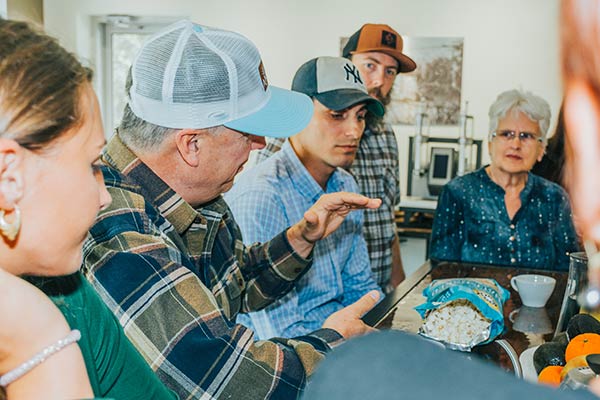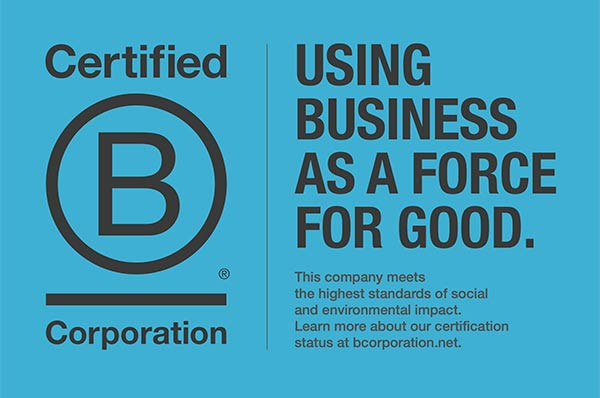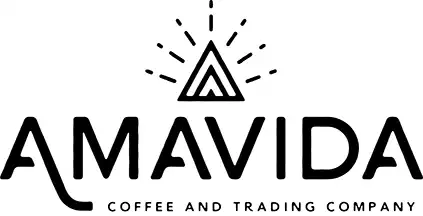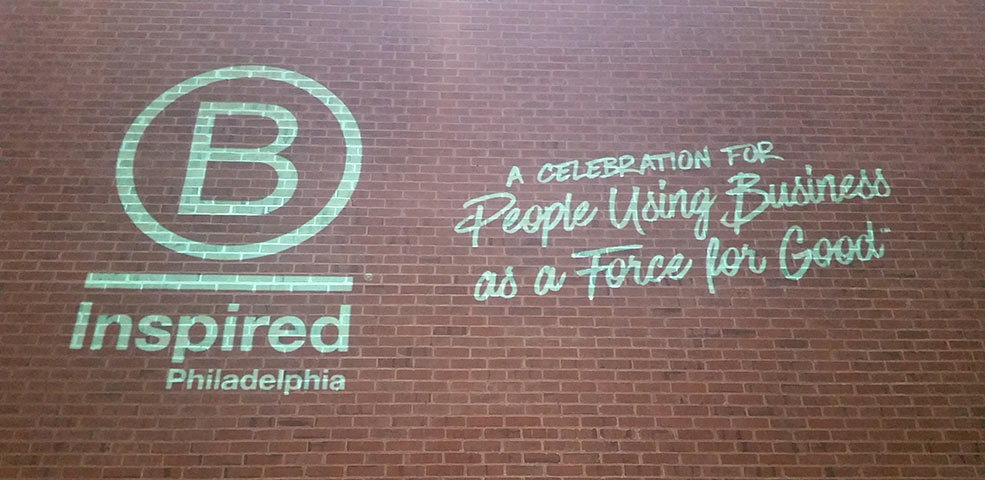Howdy everybody! I’m Kate Dargavell! You may have seen me working in Amavida’s Rosemary and Seaside cafes seasonally for the last five years, but this year I’m changing it up a bit to be a sustainability intern! I have been involved with Amavida since I was in elementary school, as both my mom and my brother are former employees. So, I’ve got a lot of love for this company and what we do.
When I first joined Amavida in 2018, I had no idea what it meant to be a certified B Corporation and even less about ESG investing. Five years later, I now understand what being a certified B Corp means, making me love Amavida and what we do even more. Now, I get to share that love, break down what it means to be a certified B Corp, and dig into the details about its lesser-known cousin, ESG investing.

What is a B Corp? How did the movement start?
B Corporation Certification measures and assesses a business’s social and environmental performance. The non-profit B Lab created the B Corp Certification. B Lab was founded in 2006 by Andrew Kassoy, Bart Houlahan, and Jay Coen Gilbert with the intent to use business as a vessel to create change for a better world. B Lab’s vision is to “transform the economic system into a more inclusive, equitable, and regenerative global economy.” Their approach ensures that all stakeholders, not just shareholders, from coffee farmers to consumers, will benefit.
Certified B Corps and aspiring companies must complete the B Impact Assessment and receive a minimum score of 80 to achieve certification, which will be renewed every three years, as well as make a legal commitment to upholding their standards by including them in their company by-laws. The assessment covers a company’s outputs and practices relating to the community, customers, environment, governance, and the work force. These sample assessment questions from their website can give you a good idea of what sort of questions and expectations they have:
“Governance: What portion of your management is evaluated in writing on their performance regarding corporate, social, and environmental targets?
Workers: What health and wellness initiatives or policies does your company provide beyond insurer-provided programs?
Community: What % of management is from underrepresented populations? (This includes women, minority/previously excluded populations, people with disabilities, and people living in low-income communities.)
Environment: Does your company monitor and record its universal waste production?
Customers: How do you verify that your product improves the impact of your client organizations?”
Click here for a more in-depth view of the B Impact Assessment.
One thing to consider about certification scoring is that every point is meaningful. In our last assessment in 2018, we had an overall B Impact Score of 114.3! While we decreased from our 2016 score, various factors are involved. First, the assessment is constantly changing to improve accessibility, thoroughness, and accuracy, thus changing the average scores of a company over its lifetime. In our case, the definition of local sourcing of products on the assessment was changed from <200 miles to <50 miles, which impacted our sourcing of agricultural products. By working with B Lab, the definition of local was changed to <200 miles for agricultural products and <50 miles for other products. Second, any number of points scored means that change is still happening. Any score above zero means that a business is conducting meaningful work. Third, any points missed are points to improve upon within your company. The goal is not to “pass” the assessment but to constantly improve your impact and broaden your scope of influence.
When talking with our founder, Dan Bailey, about Amavida’s process and the decision to become certified, he said there was “no question about it.” Dan said he was tired of sitting around waiting for the world to change, a feeling many of us can relate to. Initially, the focus was on international development and organic products. Still, as time passed and the world changed, the focus shifted to encompass more interrelated issues such as protecting cultural rights, improving the lives of small property producers, pollution, and climate change.
Check out Amavida’s B Corp Profile!

You can also visit our webpage about B Corps here.
Dan also mentioned that there are still flaws to the B Lab certification process pointing to the Nespresso incident of 2022, which put B Lab’s standards at risk. In April of 2022, Nespresso, owned by Nestlé, announced its B Corp certification, and criticism was quick to follow.
Earlier in this post, I mentioned that points greater than zero still mean good work is being done. However, it opens the door for possible deception or misrepresentation within the assessment. In their assessment, Nespresso achieved a score of 84. This score was close to the minimum requirement and neglected to consider their history with child labor, wage theft, and the abuse of factory workers, among other things. An open letter was signed by about twenty B Corps, calling on B Lab to improve their standards for certification as well as for the inclusion of the UN’s Guiding Principles on Business Human Rights framework. Following the open letter, B Lab announced its intentions to enhance audit criteria for financial services firms with revenues exceeding $1 billion who are pursuing B Corp certification.
So what is ESG investing? How does it relate?
ESG stands for environmental, social, and governance. It is best described as a framework for businesses to lessen their impact on the ecological, societal, and governance structures while generating financial returns for investors. It is predominantly used as an investing tool to allow investors to assess a company’s practices on ethics and sustainability issues. Unlike B Corp Certification, ESG investing has no regulatory body, and standards change across rating agencies. However, it can still provide helpful information about where a company’s main priorities lie and what ethical practices may be implemented as improvements.
Different factors impacting a business’s ESG score include:
Environmental: climate change, carbon emissions, air and water pollution, biodiversity, energy efficiency, waste management, and water scarcity.
Social: customer satisfaction, DEI initiatives, data protection and privacy, human rights, community relations, and labor.
Governance: board diversity, audit committees, bribery and corruption, executive compensation, political contributions, lobbying, and whistleblower schemes.
While ESG can be a valuable investment tool, evaluating the rating agency is essential, as different agencies have different ESG standards. The most prominent of these companies are Sustainalytics and MSCI. For example, in the variation of ESG ratings, Sustainalytics evaluates ESG risk on a scale of 0-40+, the lowest being the least risk and the higher numbers being more severe. On the other hand, the MSCI rating employs a letter scale ranging from CCC to AAA, with CCC meaning a company is failing to manage ESG risks and AAA meaning the company is a leader in ESG risk management. As you can see from the two most prominent examples, these rating systems can vary greatly.
You can see more about their rating systems below:
MSCI: ESG Fund Ratings and Climate Search Tool
Sustainalytics: ESG Risk Ratings
A company’s ESG score is an important tool and source of information for investors and consumers alike. It provides a view as to where a company’s priorities lie and value they place on all stakeholders. Consumer and investors alike care about environmental and social impacts companies have as well as a commitment to upholding the same position in the future. By incorporating the ESG framework into their business, consumers and investors will be more inclined to invest their money and time.
Although Amavida doesn’t participate in ESG ratings, there is still much overlap with B Corp certification regarding values and priorities; B Lab was a better fit for us and our goals as a company.
Like how every point counts as progress with the B Impact Assessment, a company that implements ESG initiatives is still contributing to a greater common goal. As I’ve learned, this side of sustainable business is difficult to navigate and heavily relies on interpretation. So hopefully, I was able to clear some things up for y’all!


